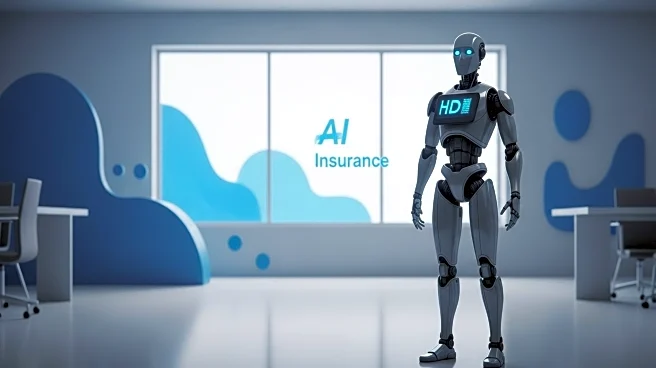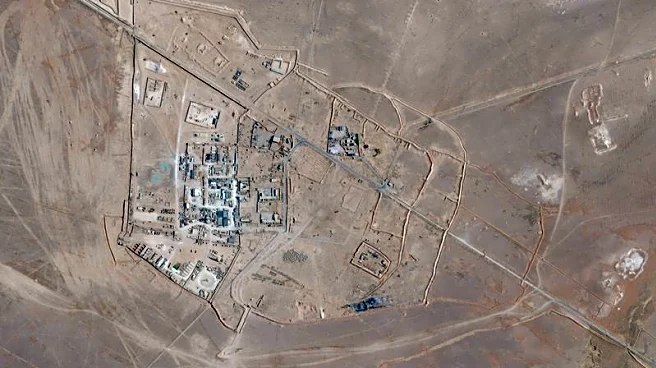What's Happening?
A recent survey conducted by Counterpart and Young Risk Professionals reveals that the insurance industry's slow adoption of AI is contributing to a talent crisis, particularly among Gen Z professionals. The survey, which included U.S. insurance professionals aged 21 to 35, found that while Gen Z values the stability and career advancement opportunities in insurance, there is a disconnect between their expectations for AI integration and the industry's current practices. Despite recognizing AI as a beneficial tool, only a small percentage of young professionals are encouraged to use AI in their roles, leading to dissatisfaction and a potential talent drain.
Why It's Important?
The insurance industry's lag in adopting AI technology could have significant implications for its ability to attract and retain young talent. As Gen Z professionals increasingly seek workplaces that leverage AI for efficiency and innovation, industries that fail to adapt may struggle to compete for skilled workers. This disconnect could impact the industry's long-term growth and competitiveness, as well as its ability to innovate and meet the evolving needs of clients. Addressing this gap is crucial for the insurance sector to remain relevant and appealing to the next generation of professionals.
What's Next?
Insurance companies may need to reassess their approach to AI integration and consider strategies to bridge the gap between current practices and Gen Z expectations. This could involve reskilling the workforce, redefining roles, and creating mentorship opportunities focused on AI. Organizations might also need to align their leadership on the importance of AI and foster a culture that embraces technological change. By doing so, the industry can position itself as a forward-thinking sector that attracts and retains young talent.
Beyond the Headlines
The slow adoption of AI in insurance highlights broader challenges in traditional industries adapting to technological advancements. This situation underscores the need for a cultural shift within organizations to embrace innovation and change. The insurance sector's response to this challenge could serve as a case study for other industries facing similar issues, emphasizing the importance of aligning business practices with technological trends to ensure future success.










